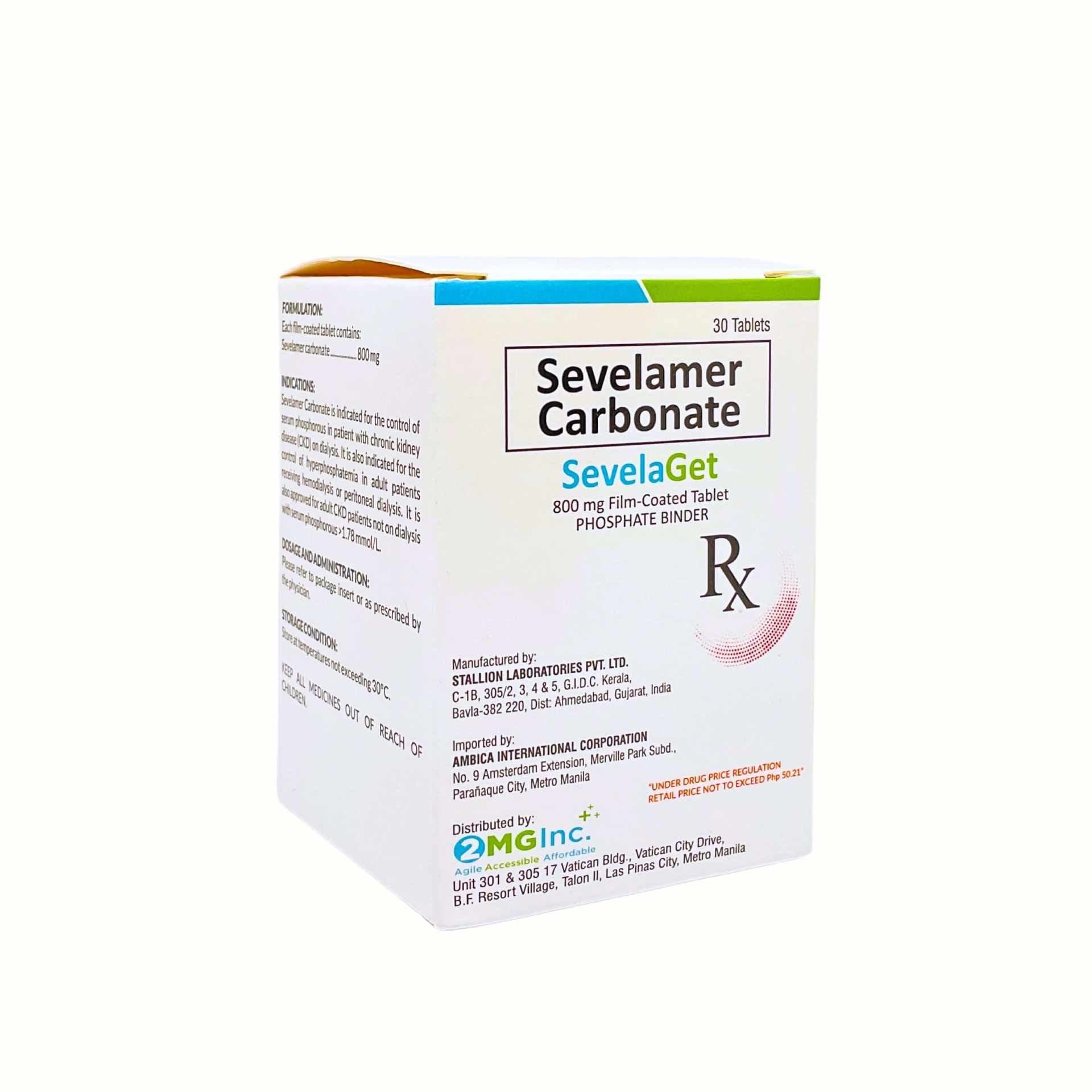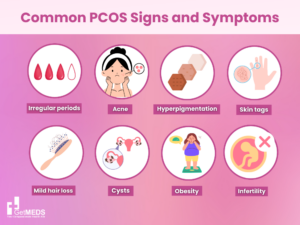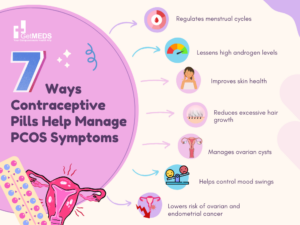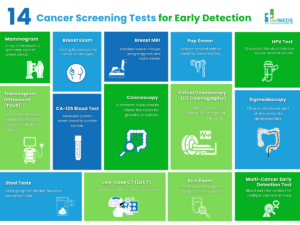Ang Kagawaran ng Kagalingan at Pagpapaunlad Panlipunan o Department of Social Welfare and Development (DSWD) ay isang ahensya ng gobyerno na namamahala sa pagbuo, pagtupad, at pag-coordinate ng mga patakaran ukol sa pagprotekta at paglutas ng kahirapan sa bansa para sa kapakanan ng mga naghihirap at ng mga nasa hindi magandang kalagayan.
Kaugnay nito, mayroon silang mga programa kung saan ang mga taong nangangailangan ng ayudang pinansyal ay maaaring lumapit sa DSWD. Ang tulong na maibibigay nito sa kanila ay mahalaga sa pagbuti ng kanilang kalagayan, pati na rin sa pag-iwas sa posibilidad na sila ay makaranas ng krisis sa pananalapi dahil sa laki ng gastusin na pwede nilang malikom.
Isa sa mga naitalang programa ay ang Assistance to Individuals in Crisis Situations o AICS. Nabibilang sa programang ito ang DSWD medical assistance for cancer patients sa bansa, dahil maaari nilang bayaran ang iyong mga chemotherapy cycles o cancer medicines.
Ano ang Assistance to Individuals in Crisis Situations (AICS) ng DSWD?
Ang DSWD Assistance to Individuals in Crisis Situations (AICS) ay naghahatid ng tulong pinansyal at materyal sa mga nais magkaroon ng access sa mga pangunahing pangangailangan ng tao o kaya naman sa mga healthcare needs ng tao, kasama ang pagkakaroon ng gamot at pag-undergo ng mga importanteng operasyon.
Sa ilalim ng tulong pinansyal, ito ang DSWD AICS list ng mga healthcare expenses na kaya ng programang ito tustusin:
- Bayarin sa ospital
- Gamot at treatments
- Mga kagamitang medikal (prosthetics, wheelchair, hearing aids, atbp.)
- Mga prosesong laboratory at diagnostics
- Therapy at rehabilitasyon
- Hemodialysis sa mga mayroong kidney failure
- Chemotherapy at iba pang cancer treatments
- Mga medikal na operasyon
- Mga orthopedic implants at prostheses para sa mga nagkaroon ng severe injuries sa kanilang joints o nangangailangan sumailalim ng joint replacement surgery
- Komplikasyon pagkatapos ng panganganak
Maliban dito, ang AICS ay naghahandog din ng pinansyal na tulong sa libing, transportasyon (sa loob lamang ng Pilipinas), edukasyon, pagkain, at iba pang sitwasyon na pwedeng ituring nasa krisis ng Department of Social Welfare and Development.
Sino ang pwedeng kumuha ng AICS?
Kahit sino ay pwedeng makapag-apply para kumuha ng AICS DSWD financial assistance.
Ayon sa Senate Bill No. 2328, ang sinumang tao o pamilya na kinikilalang nasa state of active crisis o crisis situation ng isang Department of Social Welfare and Development Social Worker ay maaaring magrequest ng na mapasama sa Assistance to Individuals in Crisis Situation (AICS) program.
Kasama dito ang mga:
- Persons with disability (PWD)
- Senior citizens
- Solong magulang
- Magsasaka
- Mangingisda
Ano ang mga requirements para sa AICS application?
Ang mga DSWD AICS requirements na kailangan mong ihanda ay nakadepende sa anong klaseng tulong na pinansyal ang gusto mong kunin. Maliban sa AICS DSWD form na ginagamit sa pag-aapply na mainam mong kumpletuhin at siguraduhin na tama, ang mga sumusunod ay ang mga ibang dokumento na kailangan mong i-hain para sa programang ito:
Para sa mga bayarin sa ospital o hospital bill:
- Valid identification card o anumang alternatibong dokumento para sa pagkakakilanlan kung wala kang ID (ang mga batang hindi nakatalang mag-aaral sa eskwelahan, indigenous people, mga biktima ng sunog, bagyo o iba pang kalamidad o sakuna ay maaaring exempted dito)
- Medical certificate / Clinical abstract / Certificate of Confinement (kinakailangang naibigay ito sa loob ng tatlong (3) buwan)
- Hospital bill o Statement of Account (kung may natitirang balance pa sa ospital)
- Promissory note (kung may natitirang balance pa sa ospital)
- Social Case Study Report
Para sa DSWD medical assistance cancer requirements (chemotherapy treatments at cancer medicines):
- Valid identification card o anumang alternatibong dokumento para sa pagkakakilanlan kung wala kang ID (ang mga batang hindi nakatalang mag-aaral sa eskwelahan, indigenous people, mga biktima ng sunog, bagyo o iba pang kalamidad o sakuna ay maaaring exempted dito)
- Medical certificate / Clinical abstract (kinakailangang naibigay ito sa loob ng tatlong (3) buwan)
- Reseta ng cancer medicine (kinakailangang naibigay ito sa loob ng tatlong (3) buwan)
- Treatment Protocol
- Official Price Quotation
- Social Case Study Report
[caption id="attachment_6842" align="alignnone" width="502"]

Source: DSWD[/caption]
Bakit kailangan magpasa or mag-submit ng price qoutation?
Ang quotation letter ay isang official document na kailangang kunin ng pasyente o ng kanyang representative mula sa mga DSWD-accredited pharmacy o supplier tulad ng Getmeds Philippines.
Ang Getmeds ay nagbibigay ng price quotation at tumatanggap ng Guarantee Letter para sa mga cancer patients na nangangailangan ng medical assistance para sa mga gamot sa cancer, kabilang na ang chemotherapy treatment.
Nakasaad dito ang kompletong detalye ng gamot para sa cancer, kabilang ang brand name, generic name, dosage, presyo bawat piraso, kabuuang halaga, at validity ng quotation.
Mag-message lang sa Facebook page ng Getmeds upang makahingi ng qoutation letter. Mas mabuting nakahanda ang mga nabanggit na requirements sa taas dahil ito ay ive-verify rin ng naturang pharmacy.
Ang pagkukumpleto ng mga nasabing requirements bago pa man ang pagkuha ng qoutation letter ay mahalaga upang mapabilis ang proseso ng application.
Mahalaga na ang quotation letter ay magmula lamang sa mga accredited pharmacy o supplier ng DSWD upang masigurado ang pagiging lehitimo nito at ang pagsunod sa mga alituntunin ng DWSD.
Para sa therapy at iba pang mga treatments at gamot:
- Valid identification card o anumang alternatibong dokumento para sa pagkakakilanlan kung wala kang ID (ang mga batang hindi nakatalang mag-aaral sa eskwelahan, indigenous people, mga biktima ng sunog, bagyo o iba pang kalamidad o sakuna ay maaaring exempted dito)
- Medical certificate / Clinical abstract (kinakailangang naibigay ito sa loob ng tatlong (3) buwan)
- Reseta ng gamot (kinakailangang naibigay ito sa loob ng tatlong (3) buwan)
- Laboratory’s request / Doctor’s Order (kinakailangang naibigay ito sa loob ng tatlong (3) buwan)
- Certification ng Psychiatrist / Psychologist
- Official Price Quotation
Para sa hemodialysis treatment:
- Valid identification card o anumang alternatibong dokumento para sa pagkakakilanlan kung wala kang ID (ang mga batang hindi nakatalang mag-aaral sa eskwelahan, indigenous people, mga biktima ng sunog, bagyo o iba pang kalamidad o sakuna ay maaaring exempted dito)
- Medical certificate / Clinical abstract / Certificate of Confinement (kinakailangang naibigay ito sa loob ng tatlong (3) buwan)
- Reseta ng mga gamot o injection(kinakailangang naibigay ito sa loob ng tatlong (3) buwan)
- Laboratory’s request galing sa doktor (kinakailangang naibigay ito sa loob ng tatlong (3) buwan)
- Official Price Quotation ng dialysis, mga gamot, or laboratory
Para sa mga assistive devices tulad prosthetics, wheelchair, hearing aids, at iba pa:
- Valid identification card o anumang alternatibong dokumento para sa pagkakakilanlan kung wala kang ID (ang mga batang hindi nakatalang mag-aaral sa eskwelahan, indigenous people, mga biktima ng sunog, bagyo o iba pang kalamidad o sakuna ay maaaring exempted dito)
- Medical certificate / Clinical abstract (kinakailangang naibigay ito sa loob ng tatlong (3) buwan)
- Reseta o request ng assistive devices (kinakailangang naibigay ito sa loob ng tatlong (3) buwan)
- Social Case Study Report
Para sa orthopedic implants at protheses:
- Valid identification card o anumang alternatibong dokumento para sa pagkakakilanlan kung wala kang ID (ang mga batang hindi nakatalang mag-aaral sa eskwelahan, indigenous people, mga biktima ng sunog, bagyo o iba pang kalamidad o sakuna ay maaaring exempted dito)
- Medical certificate / Clinical abstract (kinakailangang naibigay ito sa loob ng tatlong (3) buwan)
- Reseta ng implant o prostheses (kinakailangang naibigay ito sa loob ng tatlong (3) buwan)
- Social Case Study Report
Ang mga DSWD medical requirements na nabanggit ay importante para ma-proseso ng maayos ang iyong application. Pwedeng mapabilis din ito at makuha mo ang iyong approval sa panahon na iyong inaasahan.
Paano mag-apply para sa DSWD AICS program?
Ito ang iyong step-by-step guide kung ano ang proseso sa pag-apply para sa AICS para sa iyong madaling pag-unawa. Gawin lamang na intindihin ng mabuti ang AICS DSWD guidelines na nakasaad dito para mas mapadali ang iyong pag-apply:
Step 1
Pumunta sa Department of Social Welfare and Development Central Office (Constitution Hills, Batasan Complex, Quezon City) o sa kahit anong regional o satellite offices ng DSWD.
Matatagpuan ang ilang mga satellite offices ng Department of Social Welfare and Development sa mga sumusunod na lugar:
- CAMANAVA Satellite Office - 2nd Floor, Victory Central Mall, Rizal Avenue, Monumento, Caloocan City
- Baclaran Satellite Office - 2nd Floor, Victory Food Market, Parañaque City (Katabi ng Baclaran Church)
- San Jose del Monte Satellite Office - 4th Floor Government Center Starmall, Kaypian, City of San Jose del Monte, Bulacan
- Pasig Satellite Office - 2nd Floor, Lianas Supermarket, Caruncho Ave., Pasig City (Katabi ng Pasig Mega Market)
- Legarda Satellite Office - Gastambide St., Sampaloc, Manila
- Rodriguez Satellite Office - J. P. Rizal St., Rodriguez, Rizal
Step 2
Pagdating sa opisina ng Department of Social Welfare and Development, ipacheck ang iyong mga dokumento sa isang social worker. Kasama rin dito ang DSWD medical assistance form.
Step 3
Ikaw ay iinterbyuhin ng social worker ukol sa iyong sitwasyon at sa klase ng tulong na hinihingi mo sa kanila. Maaaring silang magrekomenda ng iba pang programa kung sa tingin nila mas angkop ito sa iyong kinalalagyan.
Step 4
Kapag ikaw ay naaprubahan ng social worker at ng Approving Officer, magsusumite ang social worker ng kahilingan para makakuha ng sa isang Guarantee Letter (GL) o medical cash aid.
Step 5
Maaaring tumagal ng ilang araw bago mo makuha ang Guarantee Letter o medical cash aid. Kapag pwede mo na itong kunin, makakakuha ka ng text galing sa social worker na kunin na ito mula sa opisina.
Kung kinakailangan mo ng karagdagang tulong, kasama na rito pati ang ating cancer patients na nagbabakasakali na makakuha ng ayuda, ito ang mga DSWD medical assistance cancer contact numbers na pwede mong maging ka-ugnayan ukol sa programa:
- DSWD FO NCR Hotline Number: (02) 8-733-00-10 to 14
- DSWD Central Office-Crisis Intervention Unit at Directline No: 962-28-13/951-74-33
Pati na rin ang kanilang mga email na cis.foncr@dswd.gov.ph o ciu.co@dswd.gov.ph
Ano ang Layunin ng Guarantee Letter mula sa DSWD sa Pagkuha ng Libreng Gamot?
Ang Guarantee Letter (GL) na galing sa DSWD ay isang dokumentong nagsasaad na ang nasabing ahensya ang sasagot sa mga gastusin ng isang pasyente sa ospital. Kabilang dito ang mga gamot, medical at surgical supplies, diagnostic procedures, at iba pa.
Sa pagsusuri ng iyong aplikasyon at mga requirements, kapag naaprubahan, saka maglalabas ang DSWD ng Guarantee Letter para sa pasyente o sa kaniyang kinatawan.
Ang Guarantee Letter ay isang printed document na dadalhin ng pasyente o kinatawan sa medicine distributor o supplier na nakasaad sa dokumento. Sila ang magbibigay ng gamot sa pasyente o kinatawan alinsunod sa nakasaad sa Guarantee Letter.
Meron bang DSWD AICS online application?
Ang Department of Social Welfare and Development ay mayroon E-services kung saan ikaw ay maaaring mag-submit ng mga application sa iba nilang programa, ngunit wala para sa AICS. Sa kasalukuyan, ang available nilang e-service ay para sa pagkuha ng travel clearance ng mga menor de edad na nagbabalak na lumakbay sa ibang bansa.
Ano pa ang mga ibang programa ng Department of Social Welfare and Development?
May iba pang mga programa — at serbisyo — ang nabanggit na ahensya ng gobyerno maliban sa AICS na kayang maghatid ng ayuda sa ating mga kababayang nangangailangan ng pinansyal na tulong ukol sa pagpapabuti ng kanilang kalusugan o kaya di naman sa pagbili nila ng mga kagamitan na mahalaga para sa araw-araw nilang buhay.
Ayuda sa Kapos ang Kita Program (AKaP)
Ang Ayuda sa Kapos ang Kita Program ay may halintulad sa AICS, pero ang pagkakaiba nila ay ang programang ito ay mas nakatutok sa mga kinikilalang minimum wage earner o mga indibidwal na mininum ang sinisweldo kada buwan at naapektuhan sa mahal ng gastusin sa mga bilihin dahil sa inflation.
Pantawid Pamilyang Pilipino Program (4P’s)
Ang Pantawid Pamilyang Pilipino Program ay ang pagbibigay ng pera ng gobyerno kada buwan sa loob ng pitong (7) taon sa mga pamilyang kapos sa pera. Ito ay para sa ikabubuti ng kanilang kalusugan, nutrisyon, at edukasyon — partikular sa mga maliliit na bata at sa mga nanay sa pamamagitan ng pagtataguyod ng preventive health care, pag-eenroll sa mga bata sa mga child development centers at eskwelahan, pagbabawas ng mga kaso ng child labor, at panghihikayat sa mga magulang na sumali sa mga community development activities upang gumanda ang kanilang pagganap bilang mga haligi at ilaw ng tahanan.
Sustainable Livelihood Program
Ang Sustainable Livelihood Program ay para sa mga pamilya at pamayanan na kinikilalang mahirap at nasa laylayan ng lipunan. Ang layunin ng programang ito ay magbigay ng suporta at interbensyon para mas mapabuti ang mga lagay ng mga kasali sa paraang pagkuha ng access sa mga bagay na makakatulong sa paglahok at pagpapanatili ng ng maunlad na kabuhayan.
Social Pension Program for Indigent Senior Citizens (SPISC)
Ang Social Pension for Indigent Senior Citizens ay kaakibat ng Republic Act No. 9994 o the Expanded Senior Citizens Act of 2010 na naglalayong mas isaayos ang mga kalagayan ng ating mga senior citizens sa pamamagitan ng pagbubuti ng kanilang kalusugan, pagpapalaki ng kapasidad na sa pagkuha nila ng pang-araw-araw at medikal na pangangailangan, pagbabawas ng kagutuman — pati ang kapabayaan at pang-aabuso sa mga senior citizen na kapus-palad, walang permanenteng source of income, o pamilya na sumusuporta sa kanila.
Kalahi-CIDSS NCDDP
Ang Kalahi CIDSS – National Community-Driven Development Program (KC-NCDDP) ay isang programa ng Department of Social Welfare and Development na tinutugun ang pagbabawas ng kahirapan sa bansa. Ginagawa ito sa pamamagitan ng paggamit ng community-driven development (CDD) approach na tanyag na estratehiya sa buong mundo sa paglutas ng kahirapan, pagkakaroon ng magandang gobyerno, pati na rin ang pagtamo ng maayos na paghahatid ng serbisyo.
Malasakit Centers
Kaakibat ang mga programang nabanggit, ang Malasakit Centers ay tinuturing one-stop shop na pinangunahan ng DSWD para sa mga ilang ahensya ng bansa na nagbibigay ng medical assistance sa mga nangangailangan: Department of Health (DOH), Department of Social Welfare and Development, PhilHealth, Philippine Charity Sweepstakes Office, at Philippine Amusement and Gaming Corporation.
Sa datos na naitala ng Abril 2024, mayroong 163 na Malasakit Centers sa Pilipinas. Ito ay ayon sa batas na nagsasabi na ang gobyerno ay dapat magtayo ng Malasakit Centers sa bawat ospital na nasa ilalim ng pamamahala ng Department of Health at Philippine General Hospital. Miski ang Philippine National Police ay pinahihintulutan na maglunsad ng ganitong mga pasilidad sa bansa.
Upang malaman kung may Malasakit Center ba na malapit sa iyo, gawin lamang reference ang listahan na ito.
Sa Kabuuan
Huwag na mag-alinlangan na mag-apply sa mga ganitong programa kung ikaw ay nangangailangan ng pinansyal na tulong para sa pagkuha ng pangangalagang medikal. Ang layunin ng Assistance to Individuals in Crisis Situations (AICS) ay makapaghatid ng tulong sa mga pamilyang walang paraan para makapagbayad sa mga gastusing ospital, kaya dapat lamang ay samantalahin natin ang magandang oportunidad na makakuha ng medical cash aid sa Department of Social Welfare and Development.
Lalo na sa ating mga cancer patients na kapos sa pondo para sa kanilang mga treatments at gamot, ang AICS na kumakatawan na ring DSWD medical assistance for cancer in the Philippines, ay talagang malaki ang mababawas sa mga umiiral na gastos ng ating mga cancer patients sa kanilang araw-araw na buhay.
Maliban sa kanila, may mga iba pang ahensya ng gobyerno na nagbibigay ng tulong sa mga taong kapos sa aspetong pinansyal. Halimbawa, nandyan ang mga senador ng Pilipinas na kayang maghandog ng tulong medikal (ito ang list of senators with medical assistance para sa iyong gabay), at ang Philippine Charity Sweepstakes Office (PCSO) Medical Access Program (MAP) tsaka DOH Cancer Support and Palliative Medicine Access Program (CSPMAP) na partikular na nagbibigay tulong sa ating cancer patients.
Importanteng maging prayoridad natin ang ating kalusugan. Ngunit kaakibat nito, dapat din nating maunawaan na hindi lahat ay may pribilehiyo na makabili ng gamot na kailangan nila o sumailalim ng mga treatments na makakapagpabuti ng kanilang kalagayan. Dahil dito, mahalaga na malaman ng tao ang mga ganitong programa para sa kanilang kapakinabangan at ikabubuti.
Mga Karaniwang Katanungan
Tanong: What is the DSWD program for cancer patients?
Sagot: Ang AICS program ay pwede sa mga cancer patients dahil maaari silang makakuha ng financial medical assistance mula dito para sumailalim sa mga procedures tulad ng chemotherapy, radiation therapy — pati na rin ang pagtanggap ng mga libreng chemotherapy drugs at ibang mga gamot na kailangan nila para sa kanilang cancer treatments.
Tanong: What is the AICS program assistance to individuals in crisis situations?
Sagot: Ang programang ito ay para makapaghatid ng tulong sa pamamagitan ng pagbigay ng pera o mga materyal na pangangailangan ng tao upang bumuti ang kanilang kalusugan. Ang mga partikular na tao na tinutulungan ng programang ito ay ang mga kinikilalang nasa state of active crisis o krisis na sitwasyon.
Tanong: Who is qualified for AICS?
Sagot: Kahit sino ay qualified para sa programang ito, basta lamang ikaw ay kinikilalang tao na nasa active state of crisis o crisis situation DSWD social worker. Nabibilang din ang mga persons with disability (PWD), senior citizens, solong magulang, magsasaka, at mangingisda sa mga indibidwal na pwede mag-apply para dito.
Tanong: How much is AICS financial assistance?
Sagot: Ang kabuuang DSWD AICS payout na maaari mong makuha sa programang ito ay PHP 10,000 para inpatient care, at PHP 3,000 naman para sa mga bayarin na di nangangailangan manatili sa ospital. Ngunit nakadepende pa rin sa iyong kondisyon at sitwasyon kung magkano ang makukuha mong pinansyal na assistance galing sa DSWD.
Tanong: How to avail cancer assistance funds?
Sagot: Maari kang makakuha ng cancer assistance funds galing sa Department of Social Welfare and Development sa pamamagitan ng kanilang AICS DSWD medical assistance o kilala rin sa tawag na Assistance to Individuals in Crisis Situations. Sa programang ito, sila ay nakakapagbigay ng pinansyal o materyal na tulong sa mga taong nangangailangan ito, partikular sa mga ginigipit sa pera.
Tanong: Is there a DSWD medical assistance online application method available?
Sagot: Ang ahensya na ito ay mayroong mga E-Services kung saan maari kang mag submit ng iyong application sa kanilang mga serbisyo at programa sa pamamagitan ng pagsasagawa ng online application. Ito ay para sa mga walang malapit na satellite o regional office sa kanila, o kaya naman ay hindi pinapayuhang pumila o pumunta sa mga offices.
Disclaimer:
The information provided in this content is for general informational purposes only. We do not claim ownership of any government-related policies, procedures, or official guidelines mentioned herein. All details regarding assistance programs are based on publicly available resources and are subject to change without prior notice. For official and updated information, please directly consult the Department of Social Welfare and Development (DSWD) or visit their official website and channels.


























 Source: DSWD[/caption]
Source: DSWD[/caption]




















 In Summary
In Summary

